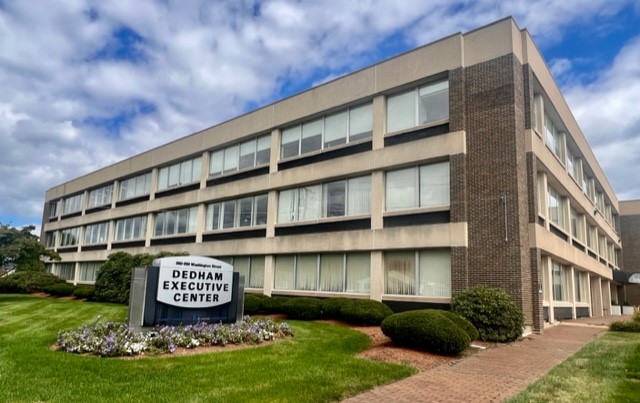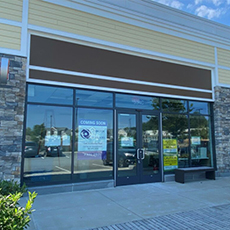LASIK FAQs
Common Questions About LASIK Surgery
What distinguishes Lexington Eye Associates from other practices performing refractive surgery and laser vision correction?
The doctors of Lexington Eye Associates have been serving patients for more than 40 years. Dr. Kieval is a cornea specialist and refractive surgeon with extensive experience in LASIK and cataract surgery. Lexington Eye Associates and Dr. Kieval are dedicated to providing exceptional care using the best available technology. This is the first and most important step toward achieving excellent results.
Who is a good candidate for LASIK?
Good candidates for LASIK are typically at least 20 years of age and have myopia (nearsightedness), hyperopia (farsightedness), or astigmatism. Good candidates for LASIK usually have some dissatisfaction with glasses or contact lenses due to discomfort or lifestyle issues. Prospective LASIK patients should have healthy eyes without a significant change in glasses prescription in the last year. Medical requirements include the absence of systemic conditions that might impair healing, such as rheumatoid arthritis, lupus, or severe diabetes. People with ocular conditions such as keratoconus, advanced glaucoma, or lazy eyes should not have LASIK. LASIK should not be performed on patients who are pregnant, planning pregnancy, or nursing. Good candidates for LASIK should also fully understand the risks, benefits, and capabilities of laser vision correction. We encourage you to contact our Boston-area offices in Lexington and Concord to learn if refractive surgery is right for you.
What is an excimer laser?
The excimer laser was the first ophthalmic laser to emit a “cool” ultraviolet beam of light rather than the thermal beam of other lasers that burn tissue. The excimer laser is computer-controlled, allowing for a precise reshaping of the cornea to sub-micron accuracy. Laser “ablation,” or treatment of the cornea, allows light to be focused onto the retina, thereby correcting nearsightedness, farsightedness, and astigmatism.
Does Lexington Eye Associates utilize the best refractive surgery technology available?
Yes. Dr. Kieval utilizes IntraLase® technology to create the LASIK flap because it’s safer and more accurate than a microkeratome. In addition, we perform CustomVue™ LASIK individualized ablations with the VISX STAR S4™ excimer laser for all eligible patients. This laser system is capable of measuring and treating the “fingerprint of vision” that makes our eyes unique. Studies have demonstrated that there may be an improved quality of vision at night, for example, following the CustomVue™ LASIK procedure.
What are the risks associated with LASIK?
In general, LASIK is a safe and effective procedure for the correction of vision. However, as with any surgical procedure (and even contact lens wear), there are potential risks involved. Some of these risks include over-correction or under-correction, trouble with night vision (glare or halos), dry eyes, and flap irregularities. Although the most severe complications are extremely rare, we want each of our LASIK patients to have a complete understanding of the potential risks of the procedure. Dr. Kieval minimizes the risk of complications by using cutting-edge technology and screening LASIK candidates carefully. At our Boston-area offices in Lexington and Concord, we can further discuss the risks and benefits of LASIK with you.
What results can I expect from LASIK?
The goal of LASIK is to reduce dependence on glasses and contact lenses. Over 99 percent of patients can see better than 20/40 without glasses after LASIK (20/40 is the level of vision required to obtain an unrestricted driver’s license in most states). Approximately 95 percent see 20/25 or better, and 90 percent see 20/20 or better after LASIK. Please remember that there can be no guarantees regarding a perfect visual outcome. Also, low to moderate amounts of nearsightedness, farsightedness, and astigmatism can be more accurately corrected than higher amounts. For more information on LASIK in the Boston area, contact our Lexington and Concord refractive surgery offices.
Will I need glasses after LASIK?
Most patients who have LASIK performed do not require glasses for routine activities. Patients who are over the age of 40 and experiencing signs of presbyopia would need to wear reading glasses after LASIK unless “monovision” is preferred.
Is LASIK painful? What will my recovery be like?
For most LASIK patients, the procedure is painless. Many patients are aware of pressure or touch but do not experience pain. After the LASIK procedure, patients may experience tearing or mild irritation for several hours before these sensations will resolve on their own.
By the next day after LASIK, many patients typically feel and see well enough to work. The vision continues to become crisper and stabilize over the next one to three weeks after the procedure.
Can I have both eyes operated on at the same time?
It has been demonstrated in several large clinical studies that LASIK results and safety are identical whether LASIK surgery is performed on both eyes simultaneously or one eye at a time. Most of our LASIK patients elect to have both eyes operated on the same day out of convenience, allowing them to take less time off work, and avoid the imbalance between corrected and uncorrected eyes. Dr. Kieval will help you determine whether it is better to perform refractive surgery on both eyes simultaneously or one eye at a time.
Are LASIK results permanent?
In general, yes, LASIK results are permanent. The vision correction achieved by LASIK generally does not wear off over time. Less than 10 percent of LASIK patients experience mild regression (a loss of laser effect). Regression occurs in the first few months after LASIK and can be corrected by enhancement or “touch up” procedure. In addition, the natural difficulty with reading after age 40 (presbyopia) will continue to increase over time.
What about the health of my eyes 20 or 30 years from now?
LASIK has been performed since 1991, and its safety is established. Twenty-year follow-up data are not currently available. Still, the likelihood of delayed problems is extremely low. LASIK is a variant of lamellar surgery, which has been performed for 50 years, and lamellar surgery patients have not been known to develop late problems.
How do I obtain more information on LASIK and refractive surgery?
To learn more about LASIK and refractive surgery, call Lexington Eye Associates at 781-876-2020. You can also sign up online for information about the next LASIK seminar, or schedule a consultation with Dr. Kieval.
Meet Our Team
The Lexington Eye Associates team is led by board-certified doctors considered to be leaders in the field of ophthalmology. Get to know us.
If you have questions or would like to book an appointment, please call (781) 876-2020 request your consultation.














